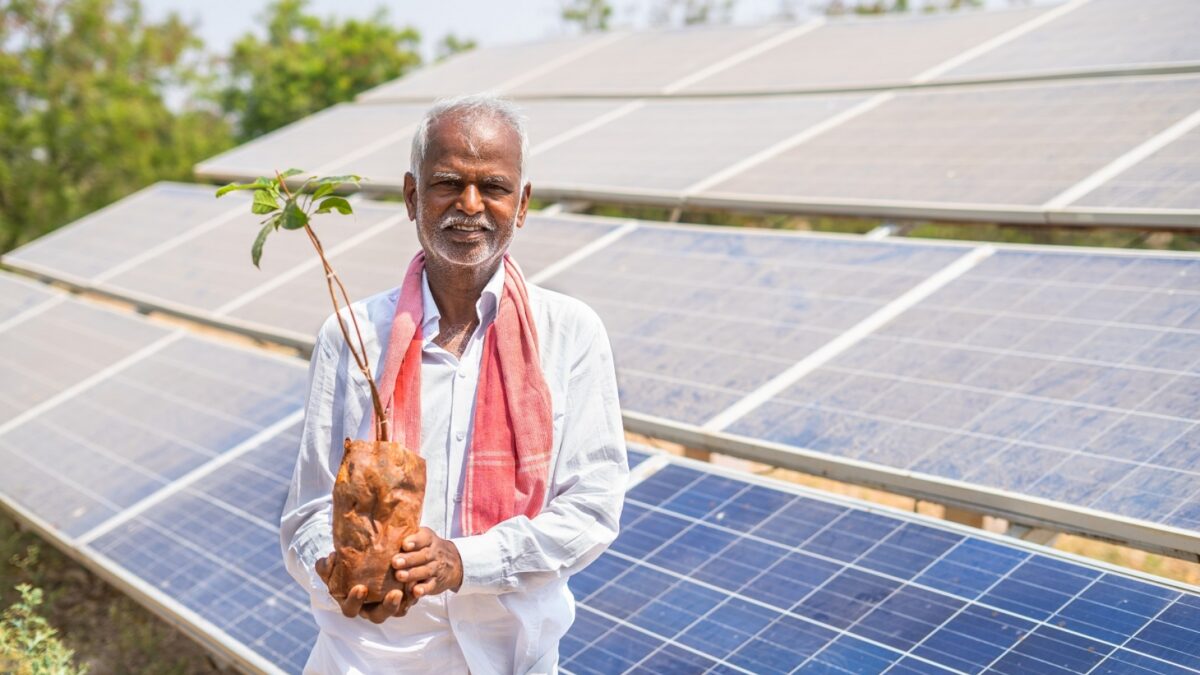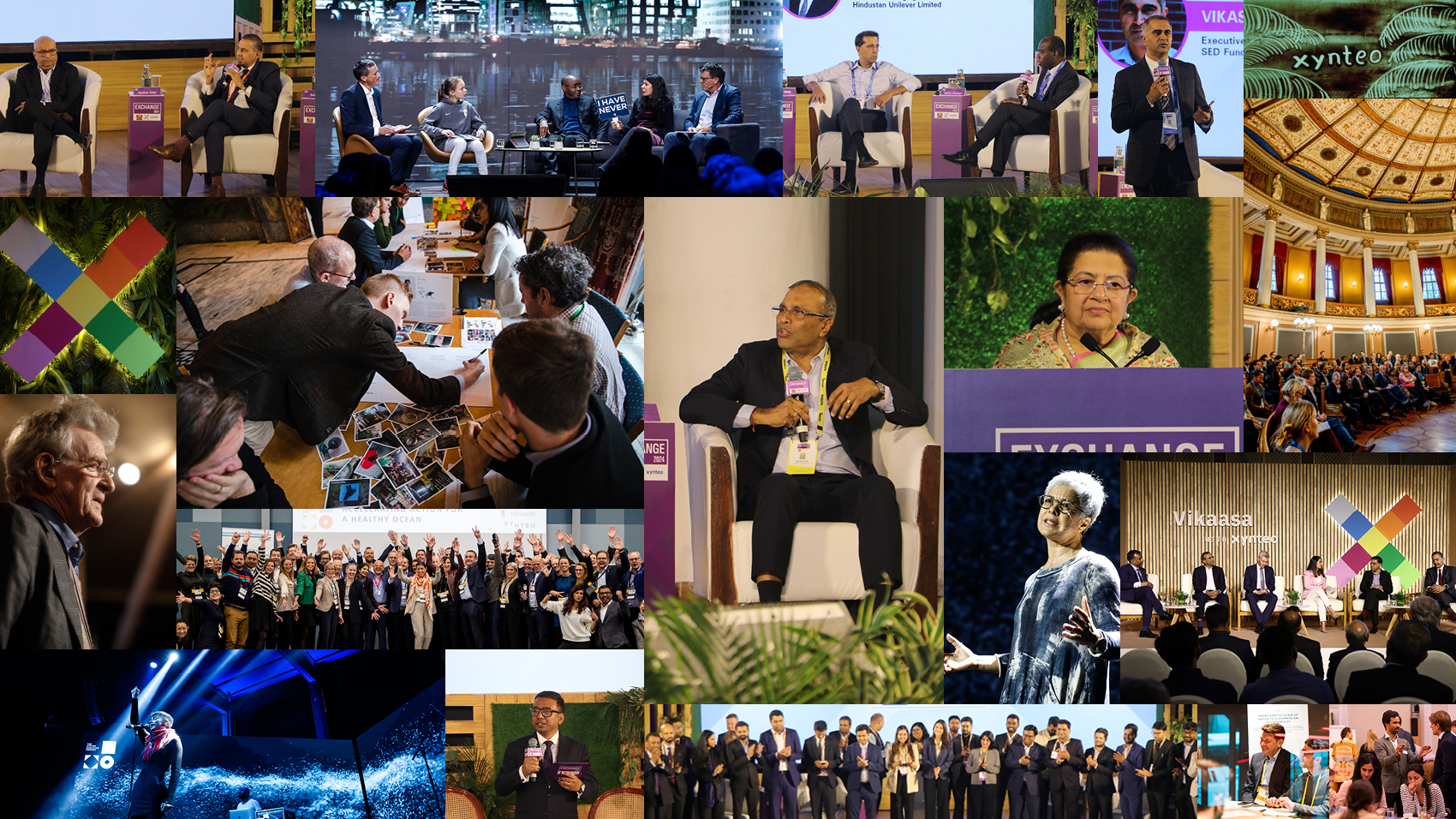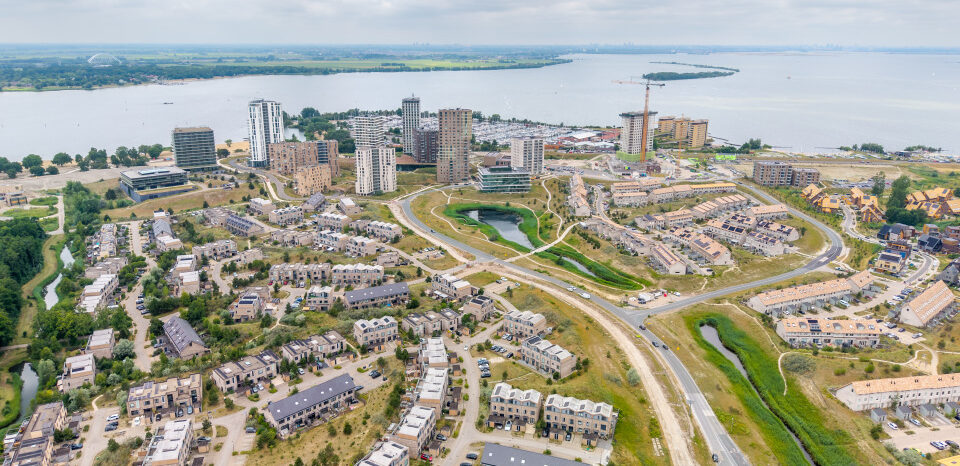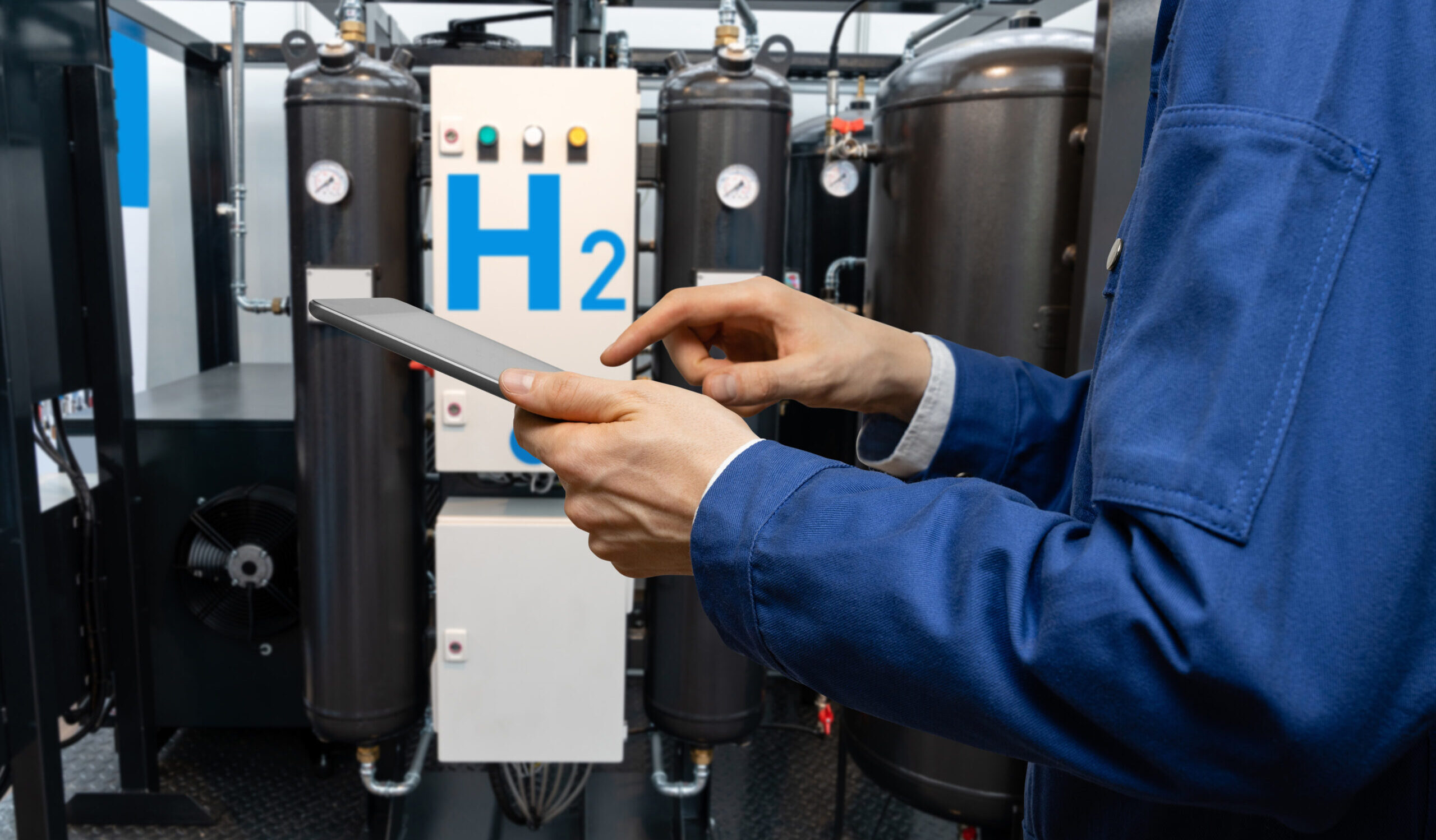India’s renewable energy shift promises decentralisation that challenges the historical inequal concentration of power perpetuated by the fossil fuel economy. While coal and oil have strengthened traditionally commercial strongholds – solar, hydro and biogas offer localised ownership models that provide communities access and self-sufficiency.
The energy transition presents a rare window for rectifying energy poverty through distributed and people-centric pathways congruent with India’s cooperative ideals. But how do we ensure a successful, just, outcome?
Our latest report Accelerating India’s Human-Centric Growth proposes “Just Transition” as a means to accelerate the economic prosperity of farmers and rural communities.
By democratising the benefits of energy transition and re-imagine the role of individual farmers and rural communities as essential stakeholders in energy transition, the transition can enable them to sell green energy and carbon credits to industries. Paving the way for carbon initiatives that leave no one behind.
The opportunity
As home to a third of the world’s smallholder farmers, pioneering decentralised models that enhance prosperity while driving adoption of low carbon alternatives promises to highlight India’s leadership. However, the agriculture sector is unable to realise its potential for distributed renewable energy (DRE) and carbon offsets due to smaller landholdings, multiple stakeholders, and long project development cycles.
Engaging rural communities and farmers, who comprise 70% of India’s population, is indispensable for an inclusive transition. Agriculture remains deeply intertwined with climate outcomes, contributing 74% of national emissions even while millions lack resources to access carbon value or energy self-sufficiency. Mainstream offset programmes centred on large renewable projects and forestry overlook smallholder potential for adoption of regenerative techniques that both sequester carbon and increase yields, and align farm economics with global environmental priorities.
In July 2023, the Ministry of Power notified the formation of India’s first domestic regulated carbon market. Overseas, voluntary carbon markets have gained substantial traction with a market value of $2 billion in 2021.
Unlocking such synergies can uplift marginalised food growers through additional income streams while driving mass adoption of low carbon alternatives. Farmer-centric models hence carry immense untapped potential for India to lead through example in localising climate action.
Establishing a blockchain-based platform
A blockchain-enabled peer-to-peer (P2P) trading platform tailored for farmers’ integration into India’s energy transition holds transformative potential by unlocking new income streams. The platform would allow farmers to seamlessly sell renewable energy and carbon credits to nearby industries by tracking distributed generation and emissions data and serve as a bridging mechanism to connect farmers with project developers, certifiers, financiers and corporate buyers across decentralised renewable power and carbon markets. By tracking everything from regenerative agricultural outputs to distributed solar generation at the source, it can provide transparency while streamlining involvement across the value chain.
Farmers could access information, technical assistance and intelligence to deploy context-suitable solutions spanning solar rooftops, community biogas and carbon farming. Corporates could, in turn, access verified regional offsets helping them neutralise stubborn emissions. Strong alignments with revenue growth, input cost savings and risk mitigation provide natural incentives for adoption.
Progressive states with grid infrastructure that enables farmer solar integration can serve as initial testbeds to demonstrate proof of concept and viability while iterating on farmer-centric design. Once networked effects kick in, these platforms can ultimately democratise the opportunity for carbon farming at a national scale — bringing incomes and global sustainability co-benefits to millions of smallholders.
Such a renewable transformation can energise rural livelihoods by generating an additional source of income for rural communities, thereby improving livelihoods, enhancing availability of sustainable energy for rural communities and farmers, resulting in decreased dependence on fossil fuels, and reducing carbon emissions by integrating renewable energy sources and implementing carbon offsetting initiatives within neighbouring industries.
Implementation roadmap
The report proposes a three-phased approach for this archetype: a design phase to define key technical and project parameters, a beta testing phase at pre-identified locations with small groups of farmers for proof of concept, and finally, a pathway to scale up.
Operationalising this vision requires multi-stakeholder coordination spanning technology, policy and ground implementation. While a blockchain foundation offers security and transparency for transactions, aspects such as smart metering, streamlined certification and awareness campaigns are equally vital.
Non-profits can provide capacity building and technical assistance to farmers alongside onboarding corporate offtakers. Once a platform is created, pilot location identified and finance secured, project developers can assist farmers with technical know-how in adopting regenerative techniques to earn carbon offsets.
Policy directives must also nurture P2P commerce models. Partnerships across agriculture, power and industry will stimulate the cooperation necessary for decentralised platforms to flourish.
An initial pilot with large landholders would establish proof-of-concept, given progressive grid policies in certain states supporting agricultural solar infrastructure. Once costs diminish and familiarity increases through network effects, the architecture can scale across geographies to democratise opportunities.
Global inspiration
Globally, decentralised energy platforms are already demonstrating how peer-to-peer renewables trading can empower communities.
The Brooklyn Microgrid in the USA typifies the viability of local energy marketplaces. By leveraging blockchain technology, it enabled rooftop solar panel owners to directly supply surplus renewable energy to neighbourhood homes while earning carbon credits. Similarly, Australia’s Power Ledger created a blockchain ecosystem facilitating peer-to-peer transactions of excess solar power between proximate producers and consumers. Their platform additionally allowed the trading of associated carbon offsets, providing communities a mechanism to mitigate emissions.
As India looks to energise its villages through hyperlocal energy networks, these global archetypes offer tested models to accelerate the renewable transition while benefiting people and planet.
The way forward
If supporting structures evolve in tandem, this archetype carries immense potential to reimagine farmers as change agents propelling the country’s sustainable growth while enhancing rural prosperity. Such decentralised models align with G20 priorities around digital public infrastructure and financial inclusion, and the promise of income diversification contributes to the government’s goal of doubling farmer incomes by 2024.
The renewable paradigm could catalyse an agricultural revolution that uplifts marginalised communities through decentralisation. Its ripples may well resound globally as India leads the charge in crafting energy transitions that leave no one behind.
–
Stay up to date with our latest interviews by following us on social media (LinkedIn I Twitter), or Contact Us to find out how we can help your leaders and organisation create people and planet-positive impact.



